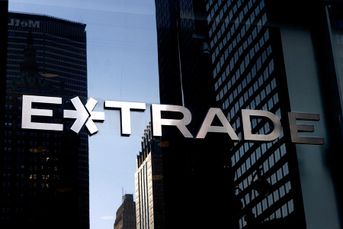BlackRock starts off subdued earnings season for fund companies

For decades, you would have been better off buying the stocks of companies that manage mutual funds than…
For decades, you would have been better off buying the stocks of companies that manage mutual funds than buying the funds they manage. But even as the second-quarter earnings reports for fund companies start to trickle in, the long-term outlook grows dim.
Blackrock (BLK) is the first fund company to report second-quarter earnings. The sponsor of iShares said Thursday that its assets grew to $4.89 trillion, up 3.6% from a year earlier. But earnings fell 3.7%, to $789 million, from a year earlier — better than Wall Street expectations, but still a decline.
One reason: Declining fees from the company’s stock and alternative offerings. Franklin Resources (BEN), Federated (FII) and Invesco (IVZ) report July 28, and all but Federated are expected to post modest declines in earnings per share. T. Rowe Price checks in July 26, and Wall Street expects that it, too, will see a fall in earnings per share.
What’s going on with fund companies? Actively managed funds are the most lucrative offerings for a mutual fund company, and it’s no secret that many funds have difficulty beating their benchmark. Last year, 66.11% of large-cap managers, 56.81% of mid-cap managers and 72.2% of small-cap managers underperformed the S&P 500, the S&P MidCap 400 and the S&P SmallCap 600, respectively.
Over the long term, the numbers get worse — in part because many funds shuffle off to the dustbin of history, taking their records with them. Standard & Poor’s numbers, quoted above, are adjusted for survivorship bias. But the attrition rate is cumulative: After 15 years, only 43% of stock and bond funds survive, according to a study by DFA.
But wait: It gets even worse than that. Just 17% of those funds that survive also beat their benchmark after 15 years, DFA says. So it’s no wonder that investors are flocking to low-cost, passively managed index funds. In the 12 months that ended June 30, investors have yanked $306.1 billion from actively managed funds and poured $176.1 billion into long-term passive funds.
In the aggregate, fund fees have been falling for a decade, according to data released Thursday by the Investment Company Institute, the funds’ trade association. The average fund offered in a 401(k) plan has an expense ratio of 0.53%, down from 0.54% in 2014, the ICI said. Overall, 401(k) fees have fallen 31% since 2000.
While that’s tremendous news for mutual fund investors, it’s less tremendous for investors in the companies that manage them. Fund companies have long had fat profit margins, which is the reason for their relative outperformance for many years. T. Rowe Price has a 29% profit margin, for example, while Franklin Resources’ margin is 23.05%. As investors shift to lower-cost funds, those margins should decrease as well.
Learn more about reprints and licensing for this article.








